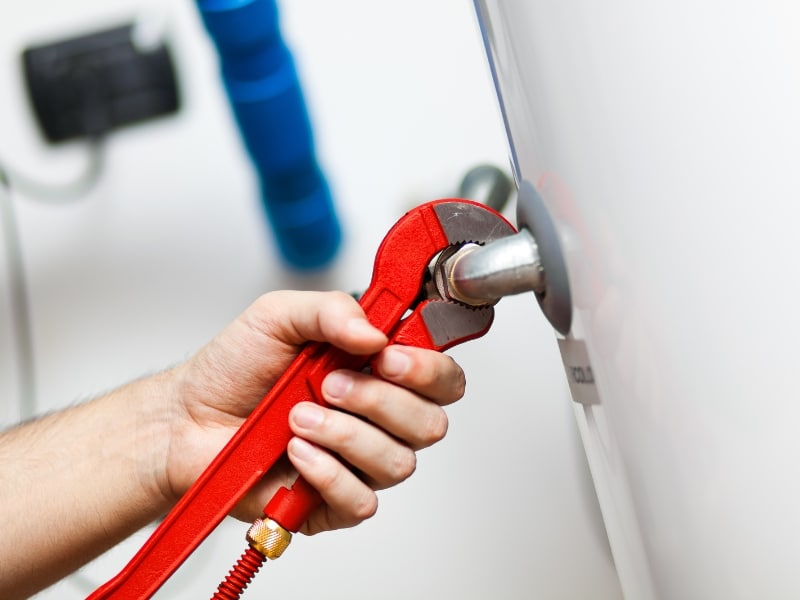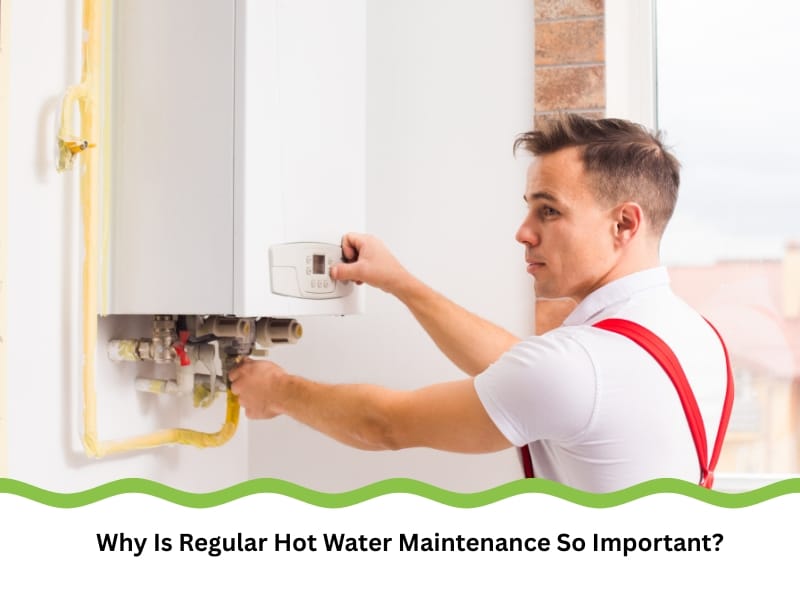A reliable hot water system is essential for daily comfort and convenience. Yet, many homeowners overlook the importance of regular maintenance until problems arise. Neglecting routine checks can lead to inefficiencies, safety hazards, and costly repairs. Hot water maintenance doesn’t just prolong the life of your unit — it helps avoid sudden breakdowns, reduces energy bills, and ensures consistent performance. Whether your system is electric, gas, or solar, keeping it in top condition can save you a significant amount of trouble. This blog explores the significance of consistent hot water maintenance and how it safeguards your home’s comfort and safety.
What causes hot water systems to break down early?
Premature breakdowns often stem from a lack of basic upkeep. Systems that aren’t maintained tend to cop the brunt of common issues like:
- Sediment buildup: Minerals settle at the tank’s bottom, forming a layer that insulates heat. This forces your unit to work harder, reducing efficiency and lifespan.
- Corroded parts: The anode rod attracts rust, but if it’s not replaced, your tank corrodes, leading to leaks or structural failure.
- Excessive water pressure: High pressure strains the system, weakening seals and valves. This can cause drips or sudden bursts.
- Faulty thermostats: Thermostats regulate temperature. When they malfunction, you may experience inconsistent water heat or none at all.
- Neglected inspections: Skipping annual maintenance allows minor issues to grow into serious problems, often going unnoticed until it’s too late.
Each of these can turn into a costly fix if ignored. Over time, even minor oversights can add up, especially if your water quality is on the harder side. That’s why it helps to be aware of the common reasons your hot water system is not heating correctly, so you can catch issues early and prevent them from spiralling out of control.
Why do hot water units lose efficiency over time?
No hot water system stays brand new forever. You might notice a drop in water temperature or longer heat-up times. This often comes down to:
- Mineral scale on heating elements: Just like in a kettle, scale builds up on heating parts. This makes them work harder and draw more electricity.
- Wear on internal parts: Valves, thermostats, and heating coils all lose accuracy and speed over time, especially without regular maintenance.
- Ageing insulation: If your system isn’t properly insulated, heat escapes before it reaches your tap. That wastes energy with every use.
- Poor ventilation in gas systems: Blocked flues or vents mean your unit works less efficiently and may pose a safety hazard as well.
Maintaining these systems means identifying and addressing these issues before they lead to more expensive inefficiencies. Understanding the importance of regular hot water system maintenance is crucial, especially for those seeking to reduce their power bill, as it ensures the system operates efficiently and reliably.
Can a poorly maintained hot water system pose safety concerns?
Maintenance isn’t just about saving money — it’s also about protecting your family. A neglected system can quietly turn into a safety risk. You might not see the danger coming until it’s too late.
- Scald risk: A faulty thermostat can cause water temperatures to spike. Even a few seconds of excessively hot water can cause burns, especially in children or the elderly.
- Gas leaks: In gas systems, damaged valves or loose fittings can let gas escape. This poses a significant risk of fire or explosion.
- Electrical issues: Exposed or worn wires in electric units increase the chance of shocks or fires.
- Legionella bacteria: If water in your tank remains lukewarm for extended periods, it creates a perfect breeding ground for harmful bacteria.
- Rust in pipes or tanks: Left unchecked, corrosion weakens your system and can contaminate your water supply.
Keeping your system in check means fewer safety risks and more peace of mind.
Which maintenance tasks keep a hot water system efficient?
There’s no magic fix — just consistent upkeep. These tasks are your best bet for keeping things efficient:
- Flush the tank annually to clear sediment.
- Inspect and replace the anode rod every few years to ensure optimal performance.
- Test the pressure relief valve to ensure it’s still functioning properly.
- Wrap any exposed pipes to prevent heat loss.
- Monitor insulation and connections for signs of wear and tear.
Here’s a quick overview of what should happen during a typical check-up:
| Maintenance Task | Frequency | Purpose |
| Flush sediment from the tank | Every 12 months | Improves heating and prevents damage |
| Check the anode rod | Every 3–5 years | Prevents internal corrosion |
| Inspect the pressure valve | Annually | Maintains safety under pressure |
| Test thermostat | Annually | Ensures temperature accuracy |
| Examine for leaks | Every 6 months | Identifies issues before they grow |
Keeping up with these tasks means fewer surprises — and a more efficient unit.
How do professionals maintain water heater performance?
Licensed plumbers don’t just tighten a few bolts and call it a day. They deliver comprehensive care, including:
- Comprehensive system inspections: From pipe seals to burner assemblies, everything gets checked.
- Full tank flushing: A pro can remove sediment far more thoroughly than a DIY job.
- Component testing: They’ll ensure that every valve, sensor, and control is working correctly.
- Gas and electric safety checks are especially critical in older systems or those with a history of poor service.
- Replacement of worn parts: Whether it’s a sacrificial rod or a faulty thermostat, they’ll replace it before it fails.
Engaging a pro ensures your hot water servicing is done right, especially for complex systems. They’re trained to spot issues you might miss — and that’s where real peace of mind comes from.

What dangers come with fixing a hot water system alone?
DIY is great for flatpacks, not for hot water. Going it alone with your water heater can lead to:
- Electric shocks if you tinker with wires or terminals.
- Damaged gas components can result in leaks or explosions.
- Voiding your warranty means repairs come straight out of your pocket.
- Missing early signs of corrosion or tank wear, which only a pro would spot.
Tempting as it may be to attempt to fix your unit, it is rarely worth the risk. Best leave it to someone who’s seen it all.
Is regular maintenance the key to avoiding major repairs?
Absolutely — it’s the smartest way to avoid bigger problems. Here’s how:
- Early detection means minor fixes don’t turn into full-blown disasters.
- Serviced systems use less energy, saving you money in the long run.
- Annual checks can extend the life of your system, thereby delaying the need for replacement costs.
- Maintenance schedules help you plan, not panic, when something goes wrong.
If you’re unsure where to start, begin by exploring reliable solutions for regular hot water maintenance needs to help keep your system running smoothly throughout the year.
Final thoughts
Reliable hot water isn’t something you should leave to chance. Regular maintenance keeps your system safe, efficient, and ready for whatever you throw at it. If you’re unsure where to start, you can always lean on a helpful walkthrough from Eco Plumbers. A well-maintained unit is one less thing to worry about.

